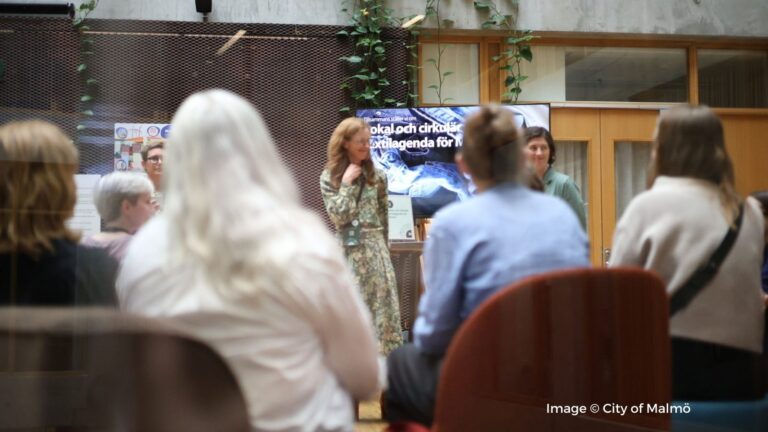Local and regional governments stand ready to tackle the pandemic of inequality
The foundational topic of inequality was raised throughout COP28, but is most deeply felt in the day-to-day work of subnational governments who are the first responders to climate change impacts. Inequality cannot be tackled without tackling climate change, and climate change cannot be tackled without tackling inequality.
On 2 December, as part of the inaugural Local Climate Action Summit (LCAS), where hundreds of subnational leaders and partners convened, ICLEI – focal point of the Local Governments and Municipal Authorities (LGMA) constituency – in partnership with Cities Race to Resilience, hosted a session focused on inequality.
Esteemed speakers from across government tiers, civil society and academia spoke to climate change’s most insidious challenge: Those that have done the least to cause climate change suffer the brunt of its impacts. In heartfelt solidarity, which was felt palpably in the room, subnational government leaders from across the world, with their LGMA partners, interrogated how inequality can be tackled through building climate resilience.
Professor Debra Roberts, the co-chair of WG II of the IPCC’s 6th assessment cycle, in the context of the topic at hand, proposed a reinvention of Einstein’s famous relativity equation E = mc2 to equality = mutual respect, cooperation and collaboration.
Finding ways to apply this formula in diverse local contexts around the world is what the LGMA community does every day, and was the ethos with which this community engaged prior to and during COP28.
Speaking in the session, Hon. Dr Cristian Zamora, Mayor of the City Government of Cuenca, Ecuador emphasized: “We use democracy to make decisions about climate change – we called a referendum for the people to vote on whether the government should protect certain areas. Almost 85% of the people said they are not willing to destroy these sensitive areas and that we must stop. It is the subnational governments that are pushing forward to find real solutions.”
This inclusive, collaborative approach was especially evident at milestone events co-hosted by the COP28 Presidency: the LCAS with Bloomberg Philanthropies, and the Urbanisation Ministerial, with UN-Habitat. And especially as initiatives such as the Coalition for High Ambition Multi-level Partnerships (CHAMP), gained momentum and commitment throughout COP28 (at time of writing 71 countries had committed to CHAMP).
The ability of local and regional governments to do this vital work requires finance, and in relation to this, Gino Van Begin, ICLEI’s Secretary General, spoke to the Constituency’s positive response to the announcement of the Loss and Damage Fund on the first day of COP28.
“The topic of inclusion is centrally linked to justice and climate justice. That brings us to one of the key decisions that has already been taken here at this COP, and that we are welcoming very much – the loss and damage fund. It is very encouraging to see that the crucial role of local and regional governments as first responders to loss and damage, as well as the architects of building back better, are now acknowledged in the decision on the fund of loss and damage. And very importantly, subnationals will have direct access to this fund. We welcome that,” Van Begin said.
The LGMA constituency stands ready to offer insights on facilitating this direct access, drawing upon years of experience in the subnational climate finance space.
Essential to ensuring that climate finance is well spent and avoids the pitfalls of maladaptation so clearly described in the IPCC’s 6th assessment report, is for city leaders to be clear on what climate resilience looks like in their local context. In light of this, in early 2024, ICLEI Africa and partners will embark on an intense visioning exercise with thought leaders from across Africa – thought leaders who represent, with legitimacy and dedication, the diverse constituencies that are tackling development and climate change, which cannot be separated.
The outcome of this exercise will be to ensure that as resources flow to this continent of opportunity, it is done so in ways that build equality and secure a future that benefits all.
A whole-of-society approach was referred to throughout this session as critical to ensuring that the resilience building conducted over the next decade harnesses the insights, experiences and wisdom of all segments of society, with the benefits distributed fairly. We owe this to current and future generations, as the Mayor of Tarawa Island, Kiribati, put so eloquently, in the LGMA COP28 High Level Closing Session.







